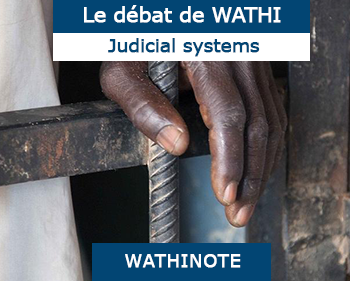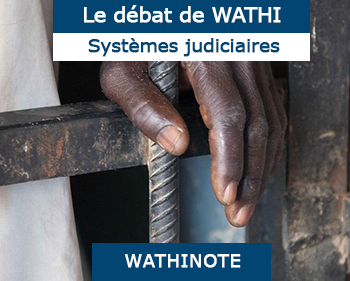Formal and informal justice in Liberia
1355 Commentaires
Author (s): Pewee Flomoku and Counsellor Lemuel Reeves Date of Publication: 2012 Original document here Published by: Conciliation Resources In this article, Pewee Flomoku and Counsellor Lemuel Reeves from the Carter Center describe their organisation’s experiences in promoting justice in post-war Liberia, in particular in linking traditional and formal justice systems. The justice system that President Ellen Johnson Sirleaf inherited when she came to office in 2006 was in tatters. Particularly in rural areas, police and magistrates were largely unpaid and unregulated, and were often operating in their own interests. A critical peacebuilding challenge for Liberia has been to build its citizens’ trust in the justice system – to persuade them that it acts in people’s interests. In recent years, much work and international support has gone into improving the formal justice system: training judges, magistrates, prosecutors and public defenders; renovating court buildings; and regularising salaries. But the benefits of these reforms have so far been slow to trickle down to ordinary citizens, especially those beyond the capital, Monrovia. In the absence of strong oversight mechanisms, there are no guarantees that corrupt practices will change. Rural Liberians pursue justice almost entirely through traditional means. A 2008 survey by Oxford University [see Further Reading] found that rural citizens took only four per cent of criminal cases and three per cent of civil cases to the formal courts. Chiefs, elders or spiritual leaders resolve disputes based on widely accepted cultural paradigms. But some traditional approaches are at odds with formal mechanisms, and can be highly controversial. A rape may traditionally be ‘talked through’ because it is seen as a problem between families and it is for the perpetrator and his family to make the victim and her family whole again; this can include payment, or sometimes even marrying the victim. The statutory system, by contrast, sees rape as a crime against the individual, which…


